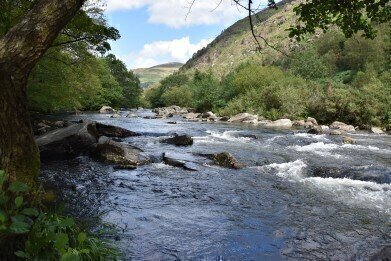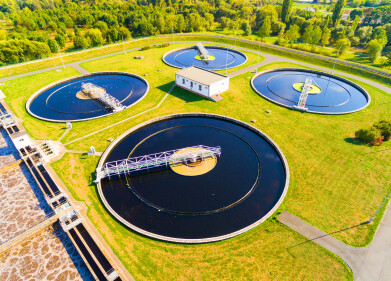Water/Wastewater
What Is Legacy Pollution?
Sep 22 2019
Mass contamination of Britain’s rivers, lakes and waterways in the 1970s still pervades today, creating a form of “legacy pollution” that has proven very difficult to get rid of. The harmful pollutants originally arose from inadequate wastewater treatment practices, industrial effluent and waste produce from the widespread practice of coal mining.
Despite the decline of this latter industry and the introduction of more stringent controls in the intervening decades, legacy pollutants such as pesticides, PCBs, flame retardants and other complex organic compounds are still found in significant concentrations in British rivers, having a damaging effect on the local flora and fauna.
Recent study shines new light on subject
The issue of legacy pollution has come under fresh scrutiny due to a recent study highlighting the continued prevalence of contaminants in British streams and rivers. Researchers from the University of Exeter, Cardiff University and the Centre for Ecology and Hydrology collaborated to use sophisticated techniques of analysing aquatic sediments collected from the South Wales valleys. Their results showed that as much as 70% of the rivers surveyed still showed dangerous levels of contamination.
Among the chemicals that were recorded were several that have since been phased out by more stringent national laws, including polychlorinated biphenyls (PCBs) and flame-retardant polybrominated diphenyl ethers (PBDEs). It’s this fact - that the chemicals are now outlawed, but continue to have detrimental effects on flora and fauna - that has earned the contamination its moniker of “legacy pollution”.
Knock-on effects
These detrimental effects are not negligible. In general, the health of British rivers has shown gradual improvement over recent decades, allowing certain species such as otters and wild salmon to return to their former habitats. However, the samples collected by the researchers in this study showed greatly reduced biodiversity and significant damage to existing food chains, especially those collected from urban settings.
As such, the study serves as a timely reminder of how critical the health of British waterways is to the environment and to the animals and plants which call them home. The stark reality of the situation is that despite the best intentions of current governments and municipalities to clean up local rivers and lakes, the task they have inherited from previous generations is sizable.
Prevention better than the cure
The study came off the back of suggestions in March that the government might be underestimating the gravity or extent of pollution in British rivers. “Urban river ecosystems in Britain have been on an improving trajectory since at least 1990, but there is still a way to go before we can say that they’ve wholly recovered from well over a century of industrial and urban degradation,” explained Professor Steve Ormerod, who helped author the study.
“The slow degradation of some pollutants means that we may have to wait a long time before these chemicals disappear. Perhaps one of the lessons is that we should avoid ecosystem damage in the first place rather than try to solve problems after they occur.” Unfortunately, it seems like that lesson has been learned all too late on this particular occasion.
Digital Edition
IET 34.2 March 2024
April 2024
Gas Detection - Biogas batch fermentation system for laboratory use with automatic gas analysis in real time Water/Wastewater - Upcycling sensors for sustainable nature management - Prist...
View all digital editions
Events
Apr 22 2024 Hannover, Germany
Apr 22 2024 Marrakech, Morroco
Apr 23 2024 Kuala Lumpur, Malaysia
Apr 23 2024 Kintex, South Korea
Apr 23 2024 Edmonton, AB, Canada


















